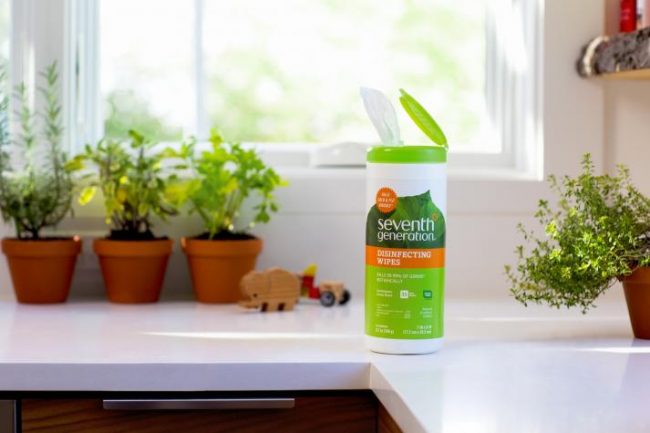
Date: 2025-12-25 Page is: DBtxt003.php txt00011966
CONSUMER PACKAGED GOODS
Unilever and 'natural' products/brands
Unilever Is Buying Up All the ‘Natural’ Consumer Products Companies
Burgess COMMENTARY
Peter Burgess
Unilever Is Buying Up All the ‘Natural’ Consumer Products Companies ...
Unilever, Honest Company, Seventh Generation, consumer packaged goods, sustainability, Leon Kaye, acquisitions

Seventh Generation is now part of the Unilever family.
Yesterday, Unilever, the consumer packaged goods (CPG) giant, announced it will acquire Vermont-based Seventh Generation for an undisclosed sum. Seventh Generation, which has long been seen as a success for its development of more responsibly-made consumer products, as well as operating internally as a sustainable company, enjoyed rapid growth over the past decade and generates about $200 million in sales annually.
Fortune reports the deal could cost Unilever up to $700 million, adding to the multinational’s summer spending binge. Unilever paid $1 billion earlier this summer to acquire the Dollar Shave Club. The courier of razors tickled consumers with its low prices, and to some observers is a more sustainable option than being beholden to the likes of Gillette and Schick. And last month, Unilever acquired Blueair, the Swedish manufacturer of air purification systems.
Then add the rumors of Unilever’s talks to purchase Honest Co. At one time, Jessica Alba’s company was the darling of both parents and those without kids, for the company’s commitment to using natural products – only to see a flurry of litigation over accusations that those ingredients were not as natural, or effective, as the company claimed. But most likely this is a temporary setback, and Honest has plenty of time to regain that trust. As of press time, Unilever is insisting on a price far lower than the company’s reported $1.7 billion valuation. But nevertheless, Honest will cost the Dutch-Anglo CPG behemoth a handsome sum.
So, what’s going on? Why is the company behind Axe, Dove, Lipton and Magnum on a buying spree of all these cutting-edge, responsible and eco-friendly companies? Are we going to see something similar to Coca-Cola buying Honest Tea, or PepsiCo scooping up Naked Juice? The evidence suggests those brands are still churning out products the way they were before they were acquired by those beverage giants despite initial fears by those brand’s fans. Nevertheless, consumers who are attached to Seventh Generation and Honest Co. will still be concerned.
But perhaps they shouldn’t be in the case of Unilever.
When Unilever announced the purchase of the beloved ice cream company Ben & Jerry’s at the turn of this century, consumers, activists and environmentalists were alarmed. But the company still operated as it always had since the 1970s, and it even became a certified B Corp in 2012. Seventh Generation, also a B Corp, has proven that a company can have a conscience and be profitable. And Unilever’s executives are smart enough to know that if a brand is doing well, let it be.
Or, Unilever could help these brands perform even better, thanks to its extensive global distribution system. Seventh Generation, which can be found at Target, and Honest, with some products at Costco, have already proven they can sell just about anywhere. But Unilever could open even more doors and opportunities for these brands, including in its lucrative overseas markets. Some research suggests more consumers in emerging economies are open to more sustainable personal care and home cleaning products, even if they have to pay more – and Seventh Generation and Honest products are already competitively priced. Adding Unilever’s heft and scale could help these brands thrive in the long run.
In addition, Unilever is proactive when it comes to transforming its global operations to become far more responsible. It has not been perfect, but the company’s progress behooved its competitors to scramble and play catch-up. Since Unilever announced its Sustainable Living Plan almost a decade ago, its stock price for the most part has been on an upward trajectory – also boosting the business case of why more firms should be more responsible and responsive to all stakeholders, not just shareholders.
Finally, access to the suppliers that have contributed to Honest’s and Seventh Generation’s success could even see more of these materials transferred to Unilever’s other brands. In a world where consumers want to see less synthetic and petroleum-based ingredients in their products, these new arrangements could be a win-win for everyone involved.
To many of us, becoming big has long been equated with bad. But in the case of Unilever’s shopping spree, big could actually mean better.
Image credit: Seventh Generation